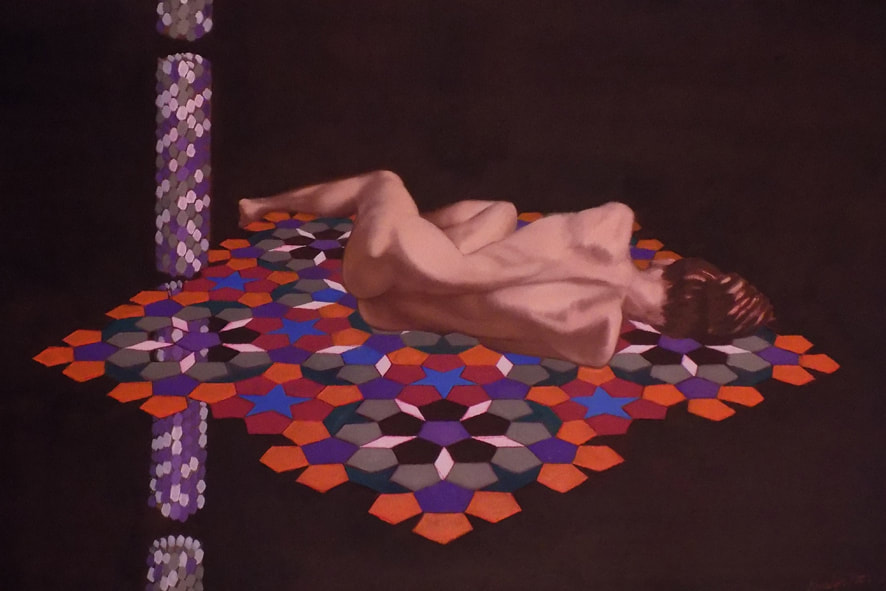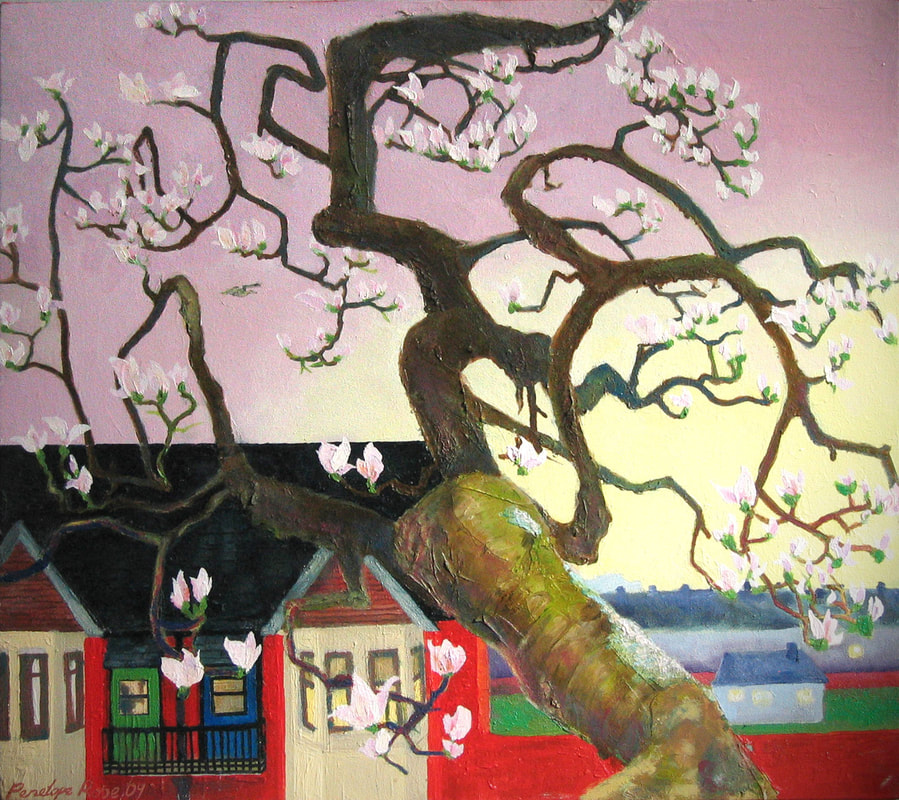 I am currently working on a collection called 'Penrose'. The art work shown below is influnced by early 'P1 Penrose Tilings' from the 1970 prior to the 'P3 Tiling of darts and kites', that the creator Sir Roger Penrose developed later. Image right: P1 Tiling https://penroseinstitute.com Penrose is known for his work in mathematical physics, in particular for his contributions to general relativity and cosmology. He has received several prizes and awards, including the 1988 Wolf Prize for physics, which he shared with Stephen Hawking for the Penrose–Hawking singularity theorems. He is fasinating...for more information go to https://en.wikipedia.org/wiki/Roger_Penrose9 I highly recommend looking up ORCH OR theory- here is one of my favourite papers I like to read and take inspiration from- Consciousness in the universe: A review of the ‘Orch OR’ theory lStuartHameroff RogerPenrose www.sciencedirect.com/science/article/pii/S1571064513001188 Which became the inspiration for this painting- P1 Tiling, microtubule,superpositiion.... 'Lay in pastures of pattern and infinite, let the awareness of self emmerge as the turning doors fly open and let me in.' (This painting is in a Private Collection, Penarth, Wales UK) Johannes Kepler, in his 1619 work Harmonice Mundi, created the first list of all the Archimedean tilings, tilings that can be created from sets of regular polygons. http://www.keplersdiscovery.com/Harmonies.html
Penrose progressed on from Kepler and look to the pentagon. It is in the first of the Penroses tilings systems from the 1970 that includes the pentagon at the center that I find most alluring. Penrose found that six tiles shapes could tile a 'plane' these and these are dipicted in the paintings. Called a 'P1 tiling' which is Penrose's original set of six prototiles. It is five-fold rotational symmetry, about the center of the of a centeral pentagon, reflecting the nonperiodicity of the tiling. Any tiling created using this set of tiles must be nonperiodic, a not recurring at regular intervals system. More information about this can be found here- http://www.wikiwand.com/en/Penrose_tiling Personally I find fragments and shapes jumping out visually in infinite overlaying patterns. It really evokes something in me. In P1 tiling I see everything. The paintings are an abstraction of geometry and nature the figure dancing in between the corridors of consiouness. I 'feel' this as a creative response rather than an anything makes sense. It is more of a fasination for the system of tiles and how these relate to everything and to us. It is also a refinement following on from work I had done prior, that began with sitting in a tree and drawing the branches going out from the bough I was sat upon which you can see below. For me the pentagon and geometry thereof seems to be everywhere. This series continues to be developed and will be shown one day...
3 Comments
|
Archives
November 2023
|

